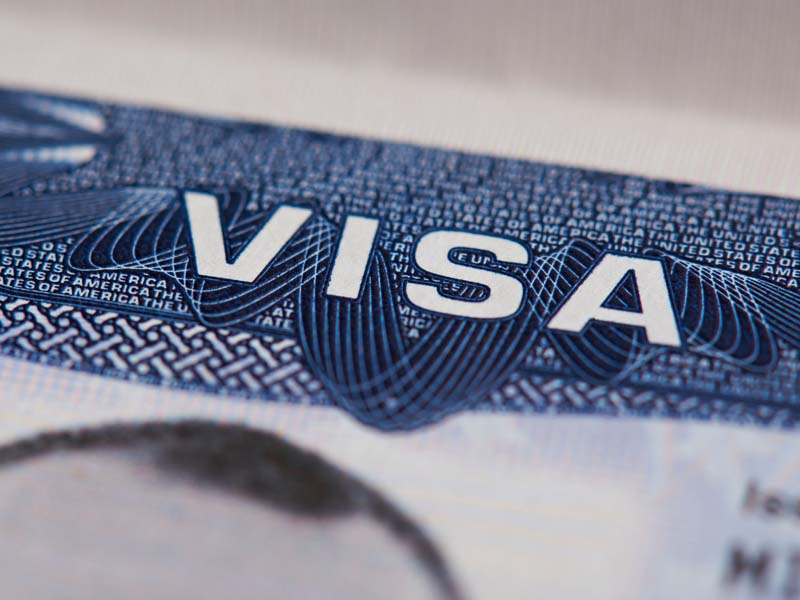Exclude Physicians From J-1 Visa Proposal, AAFP Urges DHS
Impact Would Be Especially Harmful During Pandemic
October 29, 2020, 8:36 am News Staff -- A visa rule proposed by the administration would hinder the physician workforce and threaten continuity of care for patients, the Academy told the Department of Homeland Security this month.

If finalized, the rule — eliminating “duration of status” for certain categories of nonimmigrants, including foreign national physicians with J-1 visa status — “would disrupt patient care in hospitals and clinics across the country, create significant burden on foreign-national physicians and exacerbate primary care physician shortages,” the AAFP said in its Oct. 21 letter.
“The AAFP urges DHS to exclude foreign-national physicians in the Department of State’s Exchange Visitor Program in J-1 visa status from this policy change.”
The letter was sent to Chad Wolf, acting DHS secretary, and signed by AAFP Board chair Gary LeRoy, M.D., of Dayton, Ohio.
Some 12,000 physicians who hold J-1 visas train in more than 50 medical specialties and subspecialties, providing supervised patient care at nearly 750 teaching hospitals in 51 states and territories. More than 720 of these physicians are family physicians — who, the AAFP reminded DHS, “are serving on the front lines of the COVID-19 pandemic.”
The Academy underscored its objection by joining five other physician organizations in an Oct. 26 letter, also addressed to Wolf, detailing the potential harms of the proposed rule.
“This change will disrupt the training of thousands of physicians — physicians who already have been thoroughly vetted, already are serving on our nation’s health care teams and already are carefully monitored during their time in the U.S,” warned the groups. “This will not accomplish the administration’s goal of reducing visa overstays and will instead undermine our nation’s ability to respond to the ongoing COVID-19 pandemic.”
That letter’s co-signatories were the Academy of Pediatrics, the American College of Obstetricians and Gynecologists, the American College of Physicians, the American Osteopathic Association and the American Psychiatric Association.
The proposed rule was published Sept. 25 in the Federal Register. For holders of F, J and I visa classifications, it would replace “duration of status” with a specific end date based on the applicant’s country of origin.
“J-1 physicians would be required to apply each year for an extension of stay through the U.S. Citizenship and Immigration Services or through a consulate outside of the country,” the Oct. 21 letter said — a time-consuming bureaucratic hurdle “untenable for physicians in training, as most residency and fellowship contracts are issued only three to five months ahead of the July 1 start date of each new academic training year.”
The Academy has long recognized the importance of the J-1 visa program to the physician workforce and supported a J-1 fast-track process.
The Group of Six letter said in its letter that “restrictive visa policies for J-1 physicians threaten to limit the number of individuals from abroad who pursue training in the U.S. and make it more difficult for those who do overcome these added bureaucratic barriers to remain in the country after training.”
“Family physicians in training are required to provide continuous care to a patient population for 24 months in their second and third year of residency,” the AAFP pointed out in its own letter. “If this relationship is disrupted, the physician may be required to restart their second year of residency, lengthening the overall time required for training.”
Such interruptions or delays due to bureaucratic complications also would “worsen access and continuity of care for patients in underserved populations, further exacerbating health inequities,” the Academy wrote.
The Group of Six urged the administration to specifically exclude physicians who hold J-1 visas from the proposed rule. “Not doing so will reduce our current physician workforce at a time when the nation is facing a growing physician shortage and an unprecedented health care crisis, and place a considerable burden on remaining trainees,” the organizations wrote.